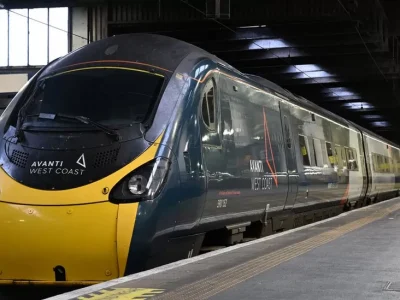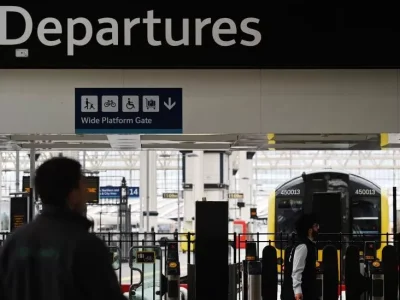Most train operators started running services later than usual on Tuesday but said that timetables would return to normal later on. Walkouts over pay and conditions by union members – planned for 5, 7, and 9 November – were canceled on Friday. But there has still been disruption to services amid timetabling issues. Operators advise people to check journeys before traveling but say most services will be back to normal on Wednesday. Southeastern said its services would start at the usual time on Tuesday, but most other operators warned of later start times. Govia Thameslink said its services would start between 07:00 and 08:00. After that the operator aimed to offer a full timetable. Northern, LNER, Cross Country, and South Western Railway also said there would be some impact on services at the start of the day. GWR and East Midlands Railway said they would also start services later, and run a slightly reduced timetable on Tuesday. Avanti West Coast said its trains would start later than usual on Tuesday but return to normal by mid-morning. Rail operating companies were informed on Friday that the strikes would no longer take place.

However, it takes time to rebuild a timetable and ensure rolling stock is in the right place. In particular, it is difficult to schedule sufficient staff at short notice. As a result services are still being disrupted. Train strikes: What are the dates and which lines are affected? Avanti has been a disgrace, says Lib Dem leader Avanti said it will run a reduced “strike day service” on Wednesday, meaning a later start on some services, and an earlier finish. The reduced timetable will mean there will be no Avanti West Coast services to North Wales, Shrewsbury, Blackpool, and Edinburgh. On Thursday, Avanti will have a slightly later start to services.
Negotiations
The suspension of the strikes is significant, as it is the first time in the RMT’s long-running dispute that a strike has been called off to pave the way for further talks. The RMT union said on Friday it had called off the strikes after “the promise of an offer” on pay from the rail operating companies and said it would enter “intensive negotiations” with the firms and Network Rail. However, rail employers and the government said their position had not changed. They have insisted that an improved pay offer depended on the union agreeing to reforms, particularly around how maintenance teams operate. Network Rail has pressed ahead with a formal consultation that would allow it to make these reforms with or without RMT agreement. That formal consultation process has been paused to allow for talks with the unions. If there is no agreement the consultation will resume on 3 December.
![]()





